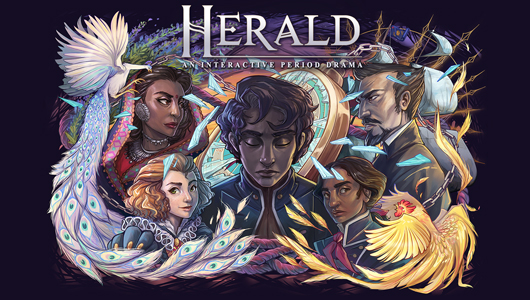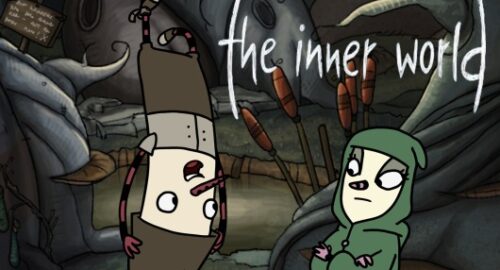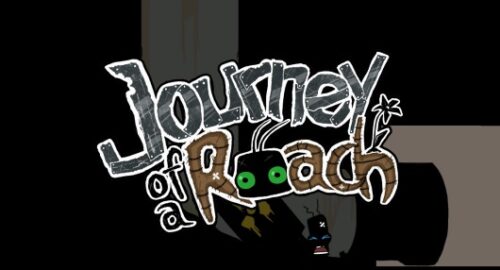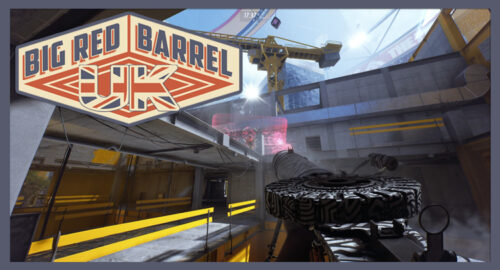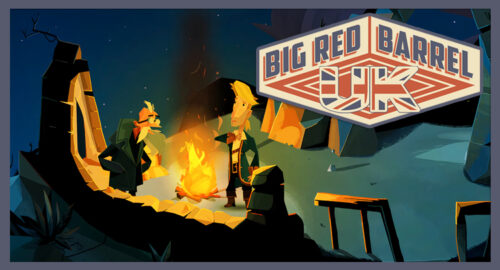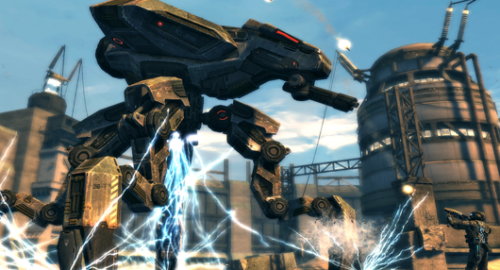Herald: An Interactive Period Drama is a point-and-click adventure with diverging dialogue and a diverse cast. It follows the main protagonist of mixed heritage, Devan Rosenburg, on his adventure on board HLV Herald to the ‘colonies’ to re-discover his roots. The game is released as a series of books – Book I and II are now available on PC, Mac and Linux, with two remaining chapters still to come.
• Developer: Wispfire
• Publisher: Wispfire
• Reviewed on: PC
• Also Available On: Mac, Linux
• Release Date: Available Now

I have always been very open about not liking point-and-click games. Burned by some of the LucasArts favoured ‘click on everything and at some point, game progress will happen’ logic, I try to avoid this genre as much as possible. On the other hand, the words ‘diverging dialogue’ is my own personal catnip. So, I had a little battle with myself before picking up the game, yet I am very glad I did. Herald’s point-and-clickiness is more adhered to Telltale’s style games and mainly revolves around interacting with objects around you, other characters and, occasionally, picking up objects and collectibles. On the other hand, the story on its own is worth the price of admission.
Herald is set in the alternative universe, where the Restoration of the English Monarchy never happened. Great Britain now called the Protectorate, and governed by an elected Lord Protector, has colonised much of Europe as well as Europe’s colonies. The game mainly deals with the colonization of India and how that affected the country and its people. One of the strongest aspects of Herald, is that it never shoves this alternative history down your throat. The information is picked up piece by piece through various conversations and interaction with different objects before it settles into a clear picture. This makes the whole set-up not only more digestible, but retains a sense of wonder and a satisfaction of discovery of then piecing all of it together.
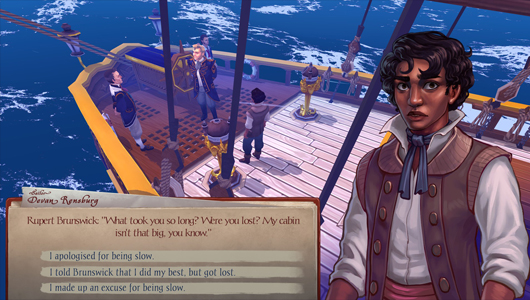
I would also give the game another thumbs up for dealing with colonialism from a different perspective. It is a topic, that in many video games has been approached from the perspective of the colonizers (for example, Sid Meier’s Civilization IV: Colonization), and, frankly, this new perspective is a breath of fresh air.
Most of Herald’s story is told in flashback by Devan, while he is being held captive by the Rani – whose motives are yet unclear. Immediately, this has an opportunity to set up an untrustworthy protagonist, and I am interested to see if this comes back in the game in any way once all of its installments have been released. It is an interesting area to be in. As a player, you are experiencing Devan’s story for the first time, but for Devan this is just a re-telling of his past deeds. It will be interesting to see if there is any discrepancy between the players version of the story and the protagonist’s account of events. Now, I might be digging much deeper than the game intended me to, but just an idea that the game might be bluffing me in some way, keeps my interest going.
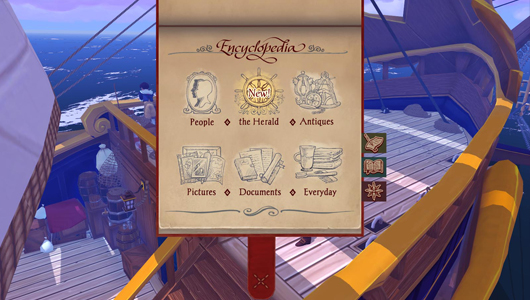
This approach does however, have its downsides. Right at the opening of the game, Rani has some tough questions for Devan. The questions that you have to answer even before you, as the player stepped on board of HLV Herald. Knowing absolutely nothing about the protagonist, I found them hard to answer. I didn’t know about Devan’s motivation or even why he would choose to answer or lie to Rani in response. However, after this rough start, the game picks up, and as a player, it becomes clearer in which directions Devan’s answers should be steered depending on the type of the approach they would like to take in various situations. However, I am yet to fall in love with Devan as the protagonist. Maybe it was the dialogue choices I made, but Devan just seemed a little bit whiny and unlikable (even though characters in the game seem to like him, but then again, maybe it is because of the dialogue options I made). Devan seems to have a narrow pool of interests, outright labeling some of the more exciting topics, like astronomy, boring. His compassion, however, is a redeeming quality to me.
Choices I made while playing had a satisfying resolution within the story. I only had one playthrough of the game, but it is clear to see, how some of the story’s events would have turned out differently if I had made different decisions. It is hard to say how much the end of the game is affected by the choices, as I only had access to the half of the story. However, on the book by book basis, they felt fulfilling and satisfying.
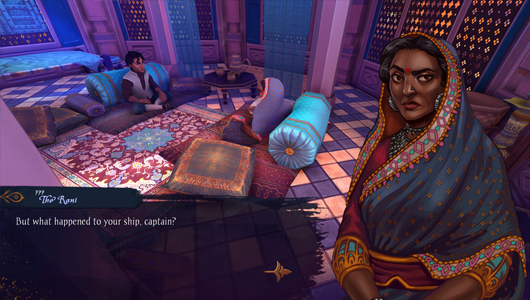
Visually the game is full of vibrantly coloured storybook. While the 3D character models are not highly detailed, making even Telltale’s engine feel blockbuster, the overall atmosphere of the game and gorgeous 2D character animations that appear while in conversation, make all the difference. With the 2D animation it becomes immediately obvious how much thought and design has been put into each character and how lovingly they were crafted. In addition, every single character has been fully voiced acted. Even though the voices are cartoonish at times, they fit perfectly with the characters, the overall atmosphere and style of the game.
Book II of Herald: An Interactive Period Drama finishes on a surprising revelation, so the hooks that the game had into me, just sunk deeper. I enjoyed very much my time with the game and will be returning for the next installments. It has an important story, which is well executed and told in a compelling way. I am sure its alternative universe has more things for me to discover and learn. Finally, it was fun to play. I loved discovering new parts of HLV Herald and learning about the life on the ship and sailors’ duties. The characters I met were different and interesting, all with their own agenda’s and goals. Trying to figure out who I could or couldn’t trust was part of the fun. Herald: An Interactive Period Drama is absolutely worth its fairly inexpensive price of admission.
